Sound of Charlotte Blog
Composer Spotlight: Nia Imani Franklin
February 16, 2024
A multi-talented musician, composer, actress, conductor, and singer, Nia Imani Franklin was born and raised in Winston-Salem, North Carolina. Her journey in music began at a young age, taking classical voice lessons and composing her first piece at just six years old. Franklin continued her music education earning a master's degree in Music Composition from The University of North Carolina School of the Arts.
Franklin moved to New York after being selected for the 2017 William R. Kenan Fellowship with the Lincoln Center of the Performing Arts education division. She immediately began working with Success Academy Charter Schools and founded a music club for the students. She also served as a cultural partner for Sing for Hope, a NYC-based non-profit organization. In June 2018, Franklin was crowned Miss New York and earned the title of Miss America the following year.
Franklin's compositions have been performed by orchestras throughout the United States, with notable works like Chrysalis Extended garnering millions of views on TikTok.
The Charlotte Symphony performing Franklin's Chrysalis Extended at Queens University of Charlotte
In 2019, Franklin founded Compose Her -- an initiative aimed at empowering women in music. Through Compose Her, she provides support, mentorship, and opportunities for female musicians, advocating for gender equality in a field historically dominated by men.
Hear the Charlotte Symphony perform Franklin's When I Consider Your Heavens conducted by Christopher James Lees on March 19 at On Tap @ Town Brewing Company. Read more
More Famous Than Mozart: Joseph Bologne, Chevalier de Saint-Georges
February 5, 2024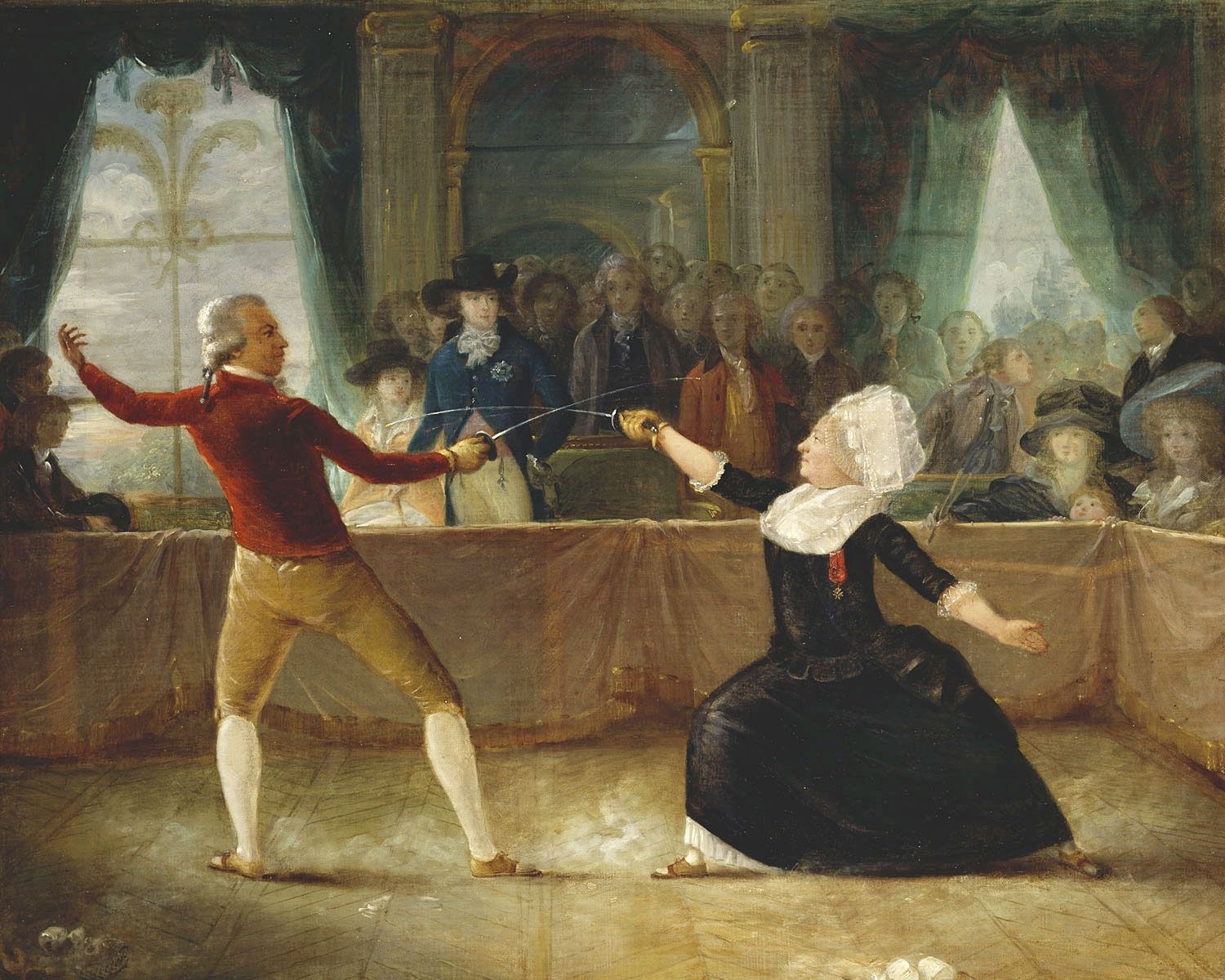
In 18th century France, Joseph Bologne was an unrivaled superstar -- in modern times, he would easily be a household name. Not only a composer, conductor, and a virtuosic violinist who outshone Mozart in Paris, the Chevalier de Saint-Georges earned renown as the greatest swordsman in Europe, a Colonel in the French Revolution, and leader in the abolitionist movement. Until recently, however, Bologne's incredible talent and achievements had faded to near-obscurity.
Bologne was born to an enslaved African-Guadeloupean mother and a French plantation owner father in 1745 on the island of Guadeloupe. The family moved to France when Joseph was a young child, and his father placed him in an elite private school in Paris. Notwithstanding the racist "Code Noir" that even prevented him from taking his father's suffix, "de Saint-Georges," Bologne studied alongside young aristocracy. Prominent teachers included the renowned master of arms, La Boëssière. The young swordsman excelled in fencing; at 17, receiving knighthood from Louis XV -- becoming Chevalier de Saint-Georges.
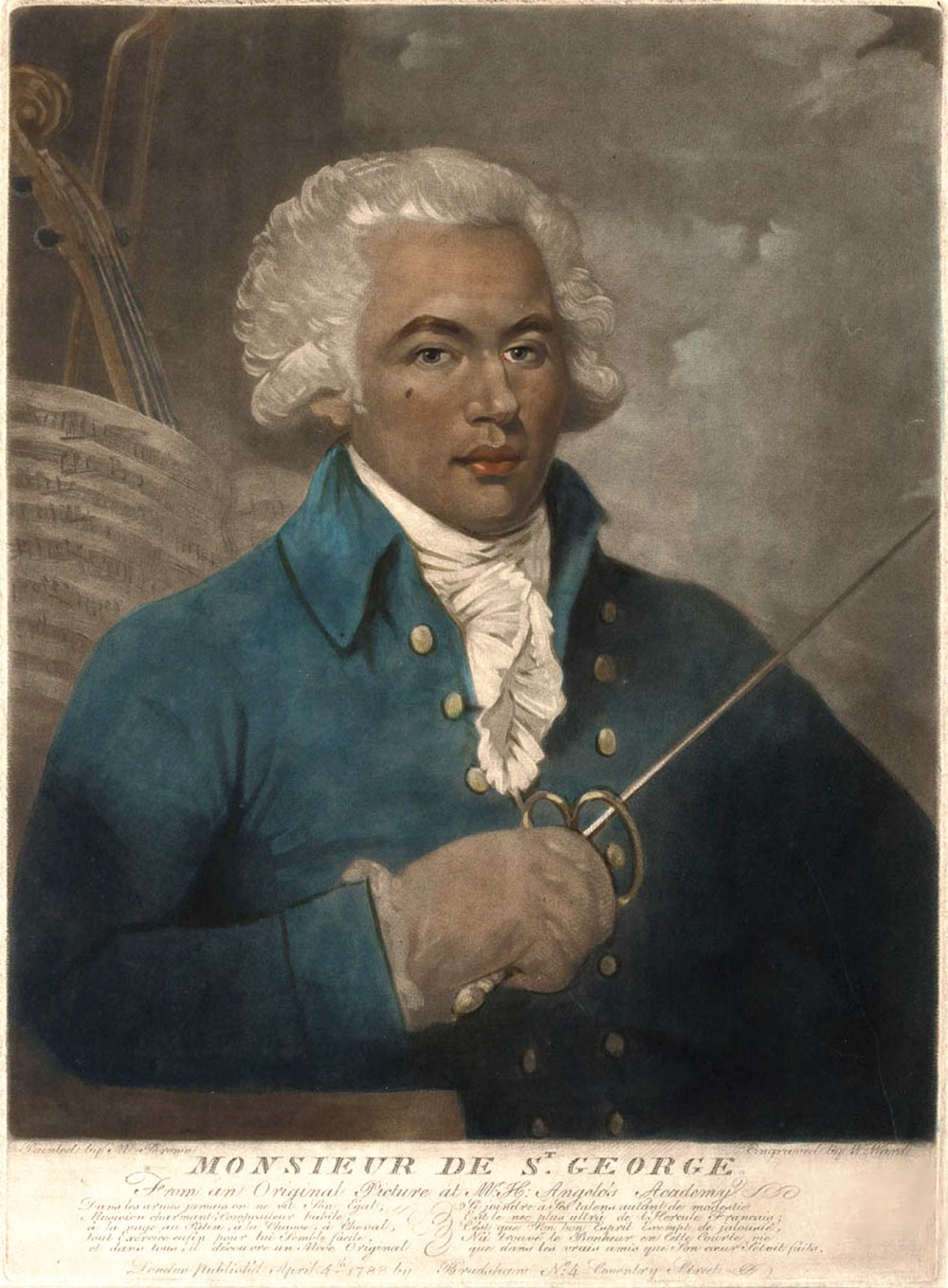
Though the Chevalier distinguished himself in many pursuits, his musical career rose to extraordinary heights, including the Palace of Versailles. Little is known about his musical training, though he likely learned from composer François-Joseph Gossec. Bologne publicly debuted two violin concertos (Op. 2) as the soloist with Gossec's Concert des Amateurs in 1772, later succeeding Gossec as the orchestra's musical director. He later founded the Concert de la Loge Olympique, which survived through the beginning of the Revolution, and after which, Bologne briefly led the Cercle de l'Harmonie.
His compositions spanned from violin concertos to operas, instrumental forms written between 1771 and 1779 comprising his oeuvre. Bologne contributed to the emerging Classical period with inventive styles. Bologne's symphonie concertantes, a blend of the Baroque concerto grosso and the Classical concerto, were some of the first in France to establish the genre. He wrote three sets of six works for string quartet, Six Quatours concertans. Bologne's three sonatas for keyboard and violin broke from the still-popular basso continuo Baroque style, and he looked ahead to the forming Classical period with textures and harmonies.
Bologne's intricate violin pieces gained the admiration of Mozart, who quite likely copied the Chevalier's work. A passage from Mozart's Symphonie Concertante in E-flat (K. 364) closely follows Bologne's violin concerto (Op. 7, No. 1), written the previous year. At the height of his illustrious career, Bologne often performed for Queen Marie Antoinette, and across the Atlantic, President John Adams acknowledged him as "the most accomplished man in Europe in riding, shooting, fencing, dancing and music."
But even exceptional talent and a high society upbringing did not protect the Chevalier from experiencing racism throughout his life. When he was considered a favorite to direct the Académie Royal de Musique, the foremost musical position in France, three of the Opera's prima donnas refused to be led by a person of mixed race. Their petition crushed Bologne's candidacy.
Read more
William Grant Still: The Dean of African American Composers
February 1, 2023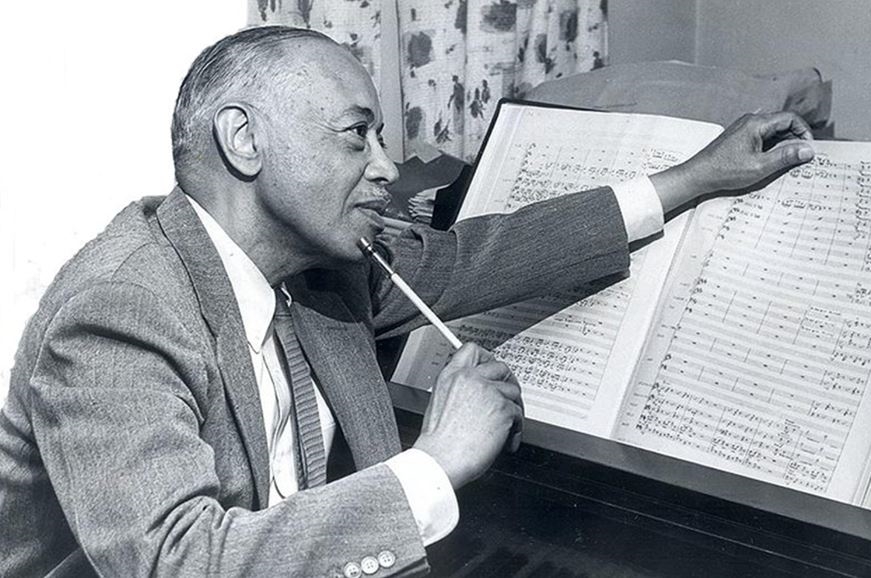
William Grant Still (1895-1978), often called The Dean of African American Composers, was an American composer, arranger, conductor, and pioneer of early 20th-century classical music. He was born in Mississippi and grew up in Little Rock Arkansas where he learned to play the violin and piano. Despite facing significant racial barriers and prejudice, Still went on to become one of the most influential figures in classical music, paving the way for future generations of African American musicians and inspiring countless composers with his unique style.
Still was the first African American conductor to lead a major American orchestra, and the first to have an opera produced by the New York City Opera. Throughout his career, Still composed more than 150 works, including five operas, eight ballets, six symphonies, and numerous other works for solo instruments, choral ensembles, and small and large orchestral groups.
Still's music was born of the Harlem Renaissance and his sound is characterized by its fusion of classical, blues, and spiritual elements, reflecting his experiences as a black man in early 20th-century America. He drew inspiration from a wide range of musical styles, including European classical music, African American spirituals, and jazz, creating a unique musical voice that was ahead of its time. His compositions feature intricate rhythms, lyrical melodies, and rich harmonies, and he often used his music to address political and social issues of the day.
Today, William Grant Still continues to inspire musicians and audiences alike. His music has been performed by major symphony orchestras, opera companies, and ballet companies around the world, and his legacy continues to influence contemporary classical music.
Explore five of the best pieces of music by William Grant Still on Classic fm.
Read more
Composer Spotlight: Daniel Bernard Roumain
February 1, 2023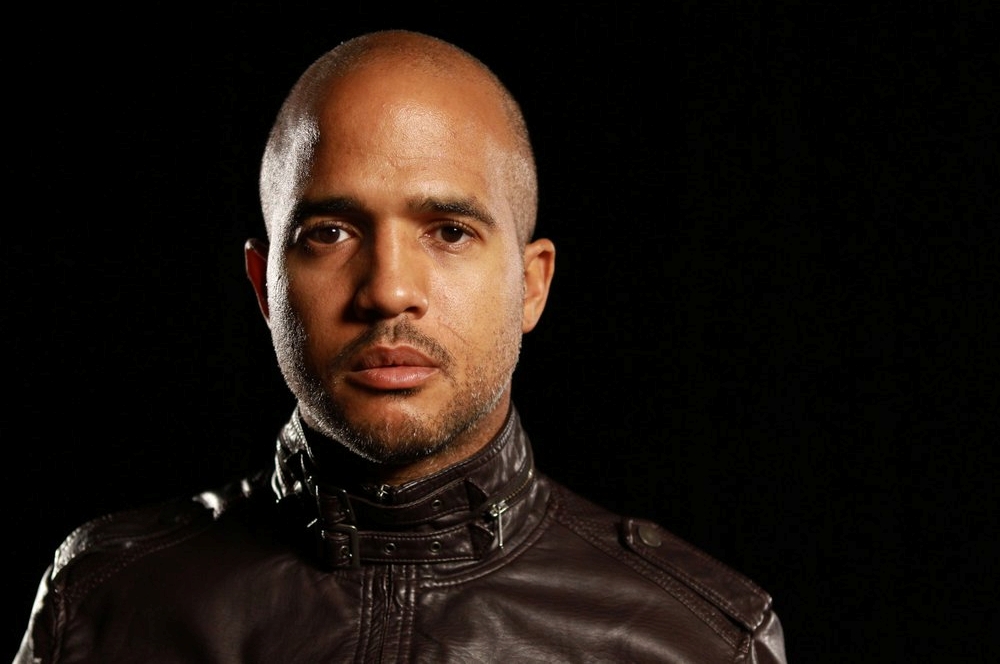
Daniel Bernard Roumain is a Haitian-American composer, violinist, educator, and activist. He is a board member for the League of American Orchestras, a voting member for the Recording Academy GRAMMY awards, and a tenured Associate and Institute Professor at Arizona State University.
Known for his signature violin techniques that fuse electronic and African American music influences, Roumain's work has a distinct genre-bending sound. Described "as omnivorous as a contemporary artist gets" by The New York Times, Roumain has collaborated with the likes of J'Nai Bridges, Lady Gaga, Philip Glass, Bill T. Jones, Marin Alsop, and Anna Deavere Smith.
A prolific composer of solo, chamber, orchestral, operatic, film, theater, and dance scores, Roumain's works have premiered at Carnegie Hall, New World Symphony, Opera Philadelphia, New Jersey Symphony, and more. In the film industry, he has composed for both feature and short films, including the acclaimed Sundance film Ailey; Requiem for the Living, In Color; and Color of Reality. Roumain also clinched an Emmy for Outstanding Musical Composition for his collaborations with ESPN.
In September 2010, the New World Symphony premiered Dancers, Dreamers, and Presidents -- an orchestral tone poem inspired by Ellen DeGeneres and then-senator Barack Obama dancing on The Ellen Show in 2007.
Activism is an important aspect of Roumain's work as a performer and composer. "As an artist-entrepreneur, I am committed to creating projects that speak to social injustice," Roumain says. This theme has been evident in collaborations with symphony orchestras across the country.
On October 24, 2019, Roumain collaborated with The Flynn and Vermont Symphony Orchestra to perform for 24 hours in front of City Hall in Burlington in protest of discriminatory immigration laws in the U.S., and in November 2020, the New Jersey Symphony presented the world premiere of Roumain's i am a white person who _____ Black people. He composed this work in a fraught political climate, following the murder of George Floyd in Minneapolis and the subsequent protests and calls for change across the country.
A Composer to Know: Erich Wolfgang Korngold
January 3, 2023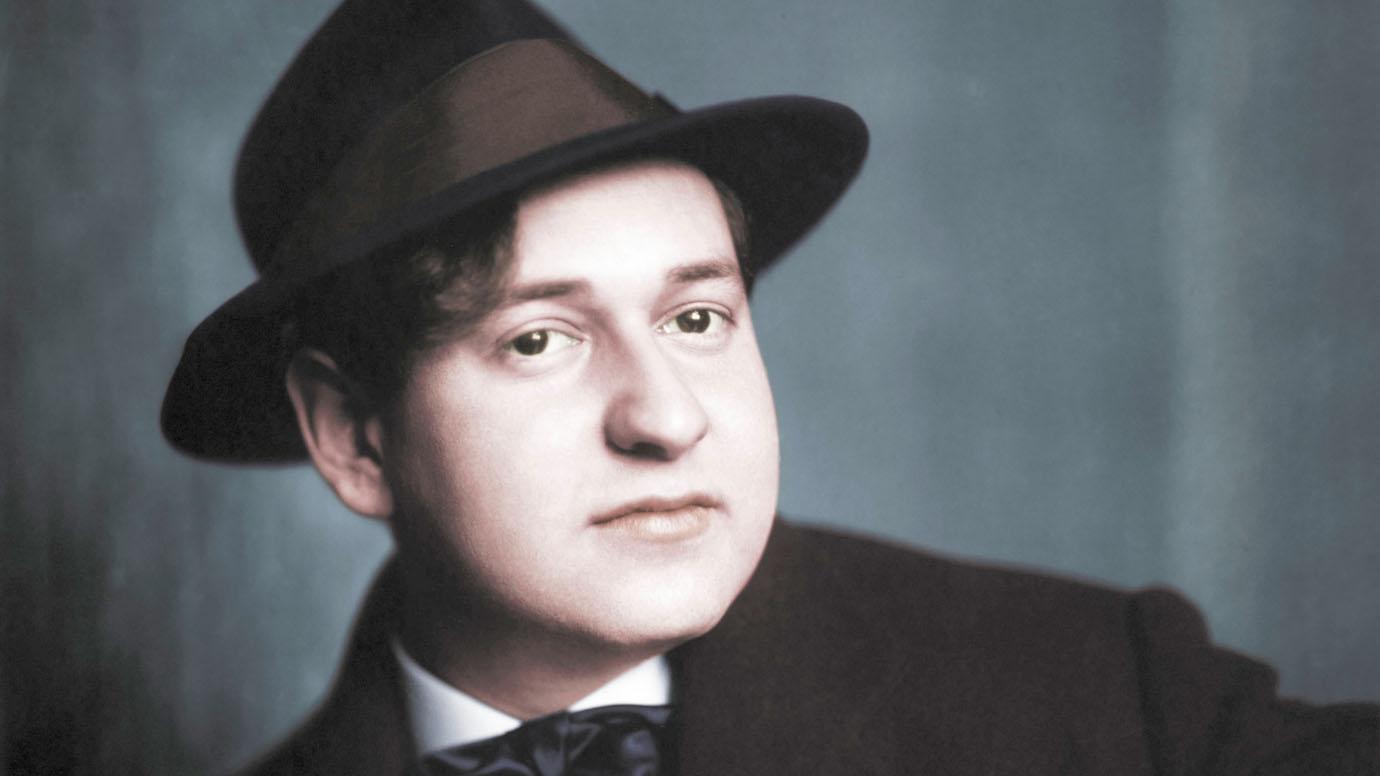
If you've visited a movie theater and delighted in the grand scores of composers like John Williams, Michael Giacchino, or Hans Zimmer, you owe a debt of gratitude to a composer who came before -- Erich Wolfgang Korngold.
Born in 1897 in what is now the Czech Republic, Korngold was a child prodigy, composing the ballet Der Schneemann (The Snowman) at age 11, causing quite a sensation at its debut performance in Vienna. As a young man, he composed multiple operas including Die tote Stadt (The Dead City), which became one of the greatest hits of the 1920s, receiving several performances at the Metropolitan Opera. The work was eventually banned by the Nazi regime because of Korngold's Jewish ancestry and after WWII, it fell into obscurity.
But it was Korngold's background in opera which revolutionized cinematic music. In the early 1930s, Korngold traveled to the United States to work on the film A Midsummer Night's Dream and began traveling between the US and Europe until the spread of Nazi influence forced him to settle in California in 1938. Korngold brought to film scoring the technique of mimicking the rhythms of spoken word and the frequent use of leitmotifs -- musical themes for characters, items, or concepts -- borrowed from Wagner's epic operas and heard today in movies like Star Wars. In 1938 Korngold received an Oscar for the score of The Adventures of Robin Hood.
Outside of the film industry, Korngold wrote plenty of non-programmatic music, including his Violin Concerto, which has become one of the mainstays of the repertoire and received an enthusiastic response after its premiere in St. Louis. The critics in New York were harsher, with The New York Times critic panning it as a "Hollywood Concerto," reflecting the prejudice against Korngold's lush and romantic musical style and the way in which the music establishment looked down upon film composers.
The work was dedicated to Alma Mahler, the widow of Korngold's childhood mentor, Gustav Mahler, and received its premiere in February of 1947 by Jascha Heifetz and the St. Louis Symphony conducted by Vladimir Golschmann. All three movements of this virtuosic and demanding concerto draw on themes from films produced between 1937 and 1939.
Experience Erich Korngold's Violin Concerto performed by Bella Hristova with conductor Kwamé Ryan on January 13 &14 at the Belk Theater.
Read more
Visionary: Valerie Coleman
February 1, 2022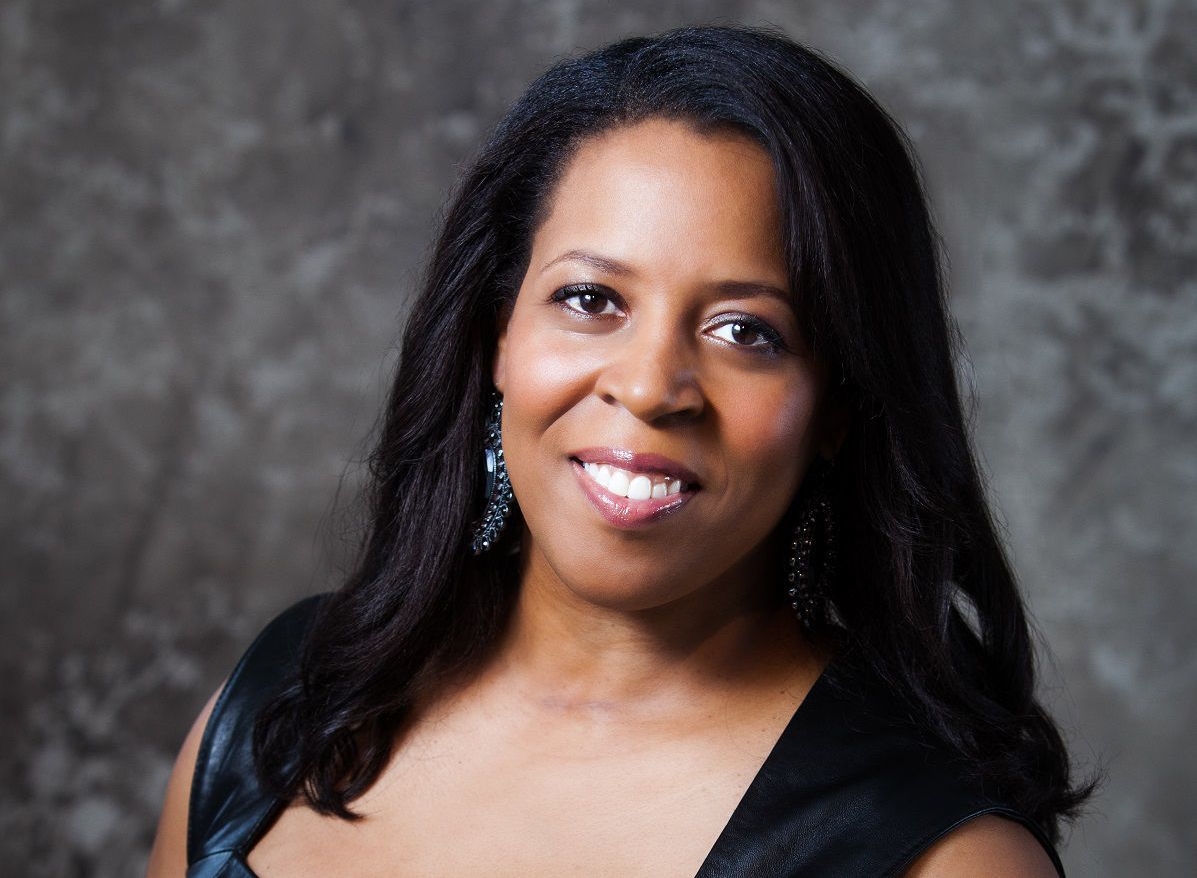
A visionary composer, flutist, and entrepreneur, Valerie Coleman has made significant contributions to modern music. From being named 2020 Classical Woman of the Year (Performance Today) to receiving a nod as one of the Top 35 Woman Composers in Classical Music (Anne Midgette, Washington Post) and a Grammy nomination, Coleman has earned high acclaim, and for good reason.
Born in Louisville, Kentucky in 1970, Coleman had an interest in composing music from an early age. She began formal music education at age 11, and started writing symphonies on a portable organ. Advancing her hobby, by the age of 14 she had written three full-length symphonies and won local and state competitions. She studied music at Boston University and earned a Master's degree in flute from Mannes College of Music. Debuting as a flutist/composer at Carnegie Hall, Coleman has since regularly performed at major music halls across the United States and has collaborated with other performers including Yo-Yo Ma, Chick Corea, Paquito D'Rivera, David Shifrin, Orion String Quartet, Harlem Quartet, Miami String Quartet, Dover Quartet, Wu Han, and many more. With enormous interest in her work as a composer, many orchestras, ensembles, associations, and festivals have commissioned her work; notably, Coleman became the first African-American woman to be commissioned by the Philadelphia Orchestra and the Metropolitan Opera.
Coleman's composition style infuses modern orchestration with jazz and Afro-Cuban traditions, ideas, and social commentary. She incorporates poems and speeches from such diverse figures as African American poet Margaret Danner, Cesar Chavez, Robert F. Kennedy, and A. Philip Randolph in some of her works. Josephine Baker: A Life of le Jazz Hot celebrates the life of Josephine Baker. She honors "the legacy of Native Americans and former African slaves (adopted into Native American tribal membership through emancipation or marriage)" in a chamber piece and recounts stories of trafficked humans in a flute sonata. Coleman is among the most-played composers living today, and her works are deeply relevant contributions to modern music . Umoja, her signature piece for wind quartet, is named after the Swahili word for unity and is listed by Chamber Music America as one of the "Top 101 Great American Ensemble Works".
Coleman's experiences in music from childhood to college inspired her to establish her own chamber music ensemble, Imani Winds, for which she is the resident composer. Using the name "Imani", the Swahili word for faith, she formed the chamber ensemble with African American woodwind players who might approach the music from a similar cultural background. From its beginning, they focused on repertoire inspired by African, Latin American, and North American cultures, and championed non-European composers that were underrepresented in contemporary music. In an interview with NPR, she recollected, "I used to be in the youth orchestra [as a child], and there were so many African Americans. But somewhere along the line, when I got to college, I was the only one in the orchestra. So I wondered what in the world happened here? It came to my mind that role models are needed."
The ensemble and their music has been met with high honors: winner of the Concert Artists Guild competition, resident-artists of Chamber Music Society of Lincoln Center, and winner of multiple ASCAP awards. The music industry recognized not only the musical qualities of Imani Winds' performances and studio albums, but the significance of their work. NPR Music acknowledged, "Imani Winds' members have earned a reputation for expanding the recorded wind-quintet repertoire, but in a way that's culturally significant." In advocacy and mentorship of emerging artists and ensembles, Coleman created the Imani Winds Chamber Music Festival in 2011, a summer mentorship program, which invites musicians from over 100 institutions around the world to advance their own careers from the ensemble Coleman created with her vision of raising up underrepresented musicians. Read more
Of Rage and Remembrance: John Corigliano’s powerful response to the AIDS epidemic
February 1, 2022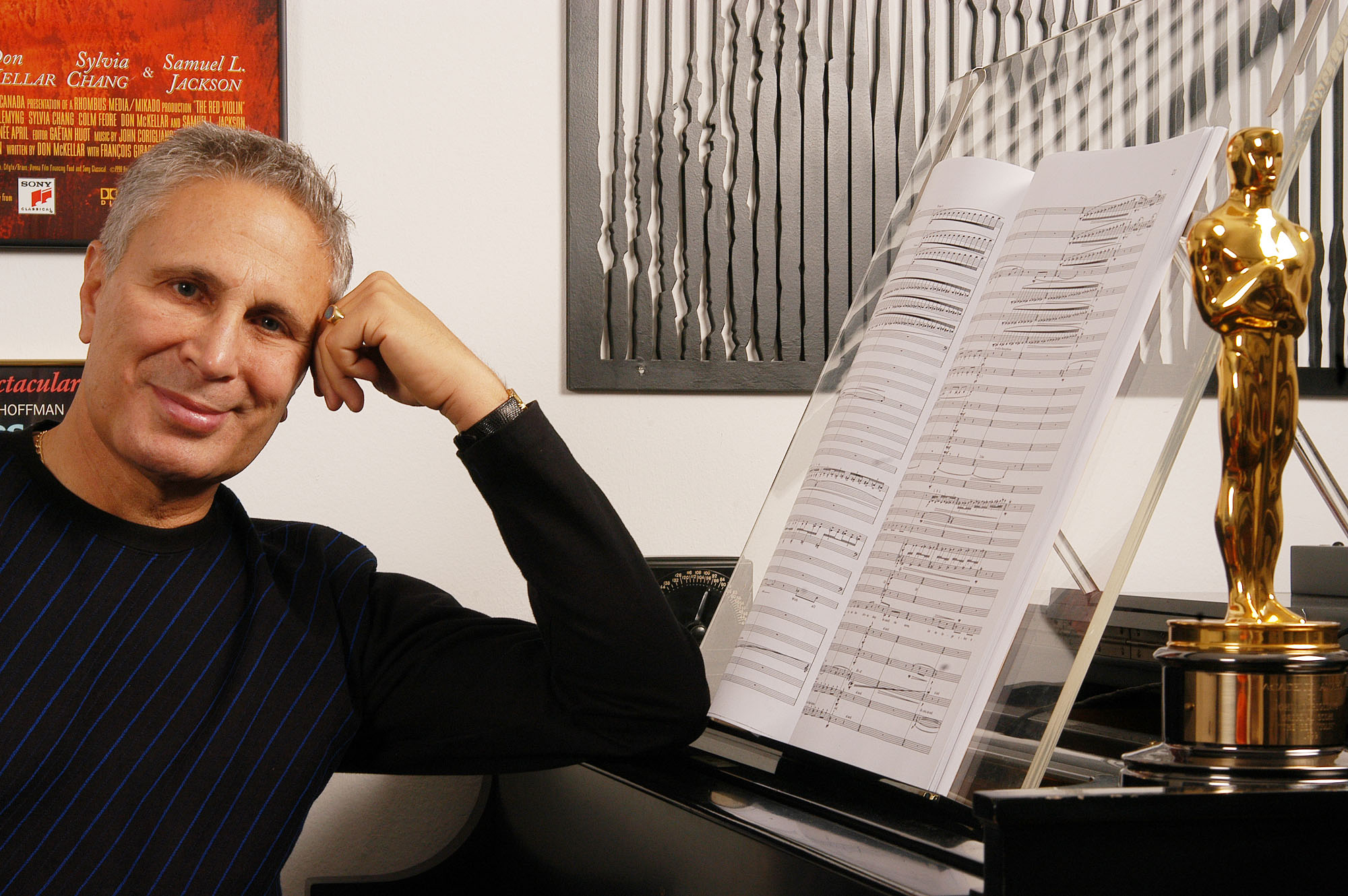
According to the composer himself, John Corigliano was reluctant to try his hand at a modern symphony, but he felt it was the appropriate format for this particular work. "My Symphony No. 1 was about world-scale tragedy and, I felt, needed a comparably epic form," he wrote. The AIDS epidemic had affected him deeply, and inspiration came, in part, from the NAMES Project AIDS Memorial Quilt.
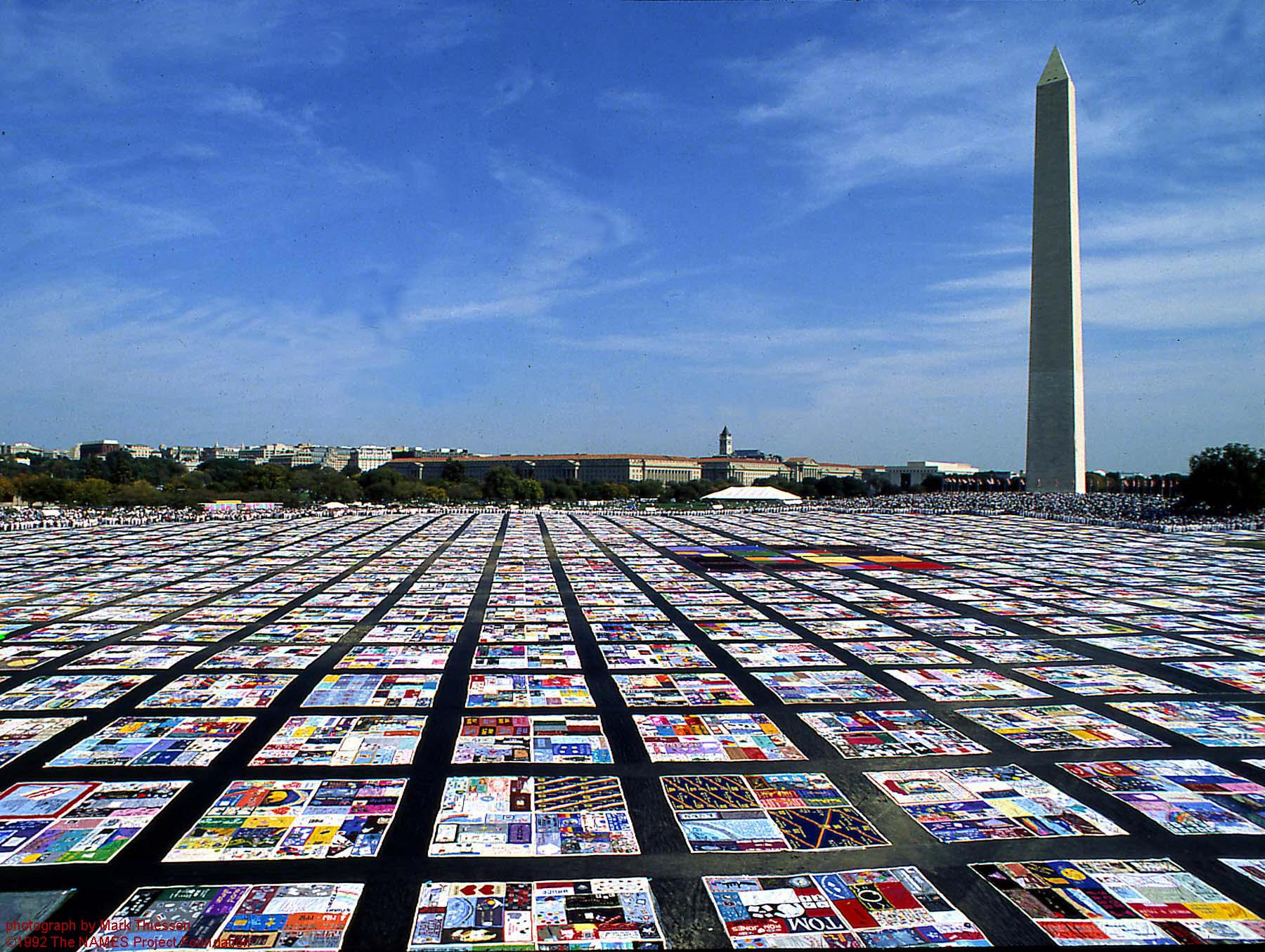
"I was extremely moved when I first saw 'The Quilt,' an ambitious interweaving of several thousand fabric panels, each memorializing a person who had died of AIDS, and, most importantly, each designed and constructed by his or her loved ones. This made me want to memorialize in music those I had lost, and reflect on those I was losing."
The first movement of the work, Apologue: Of Rage and Remembrance, includes an offstage piano playing Isaac Albeniz' Tango, a favorite work of Corigliano's pianist friend, who is memorialized in this movement.
The second movement, Tarantella, was written in memory of a music executive and amateur pianist. With shocking percussion and brass interrupting an Italian folk dance, followed by a wistful clarinet, Corigliano has written that this movement represents his friend's descent into AIDS-related dementia.
Chaconne: Giulio's Song was written to remember Corigliano's college friend and amateur cellist, Giulio. A solo cello represents his friend while a second cello joins in, a remembrance of Giulio's cello teacher.
The final movement, Epilogue, is played against a repeated pattern consisting of waves of brass chords. Against this, each of Corigliano's friends and their music are recalled. The work ends as a solo cello holds the same perpetual A, finally fading away.
In the composer's own words:
Read more
Cultural Ambassador: Dr. Frederick C. Tillis
January 31, 2022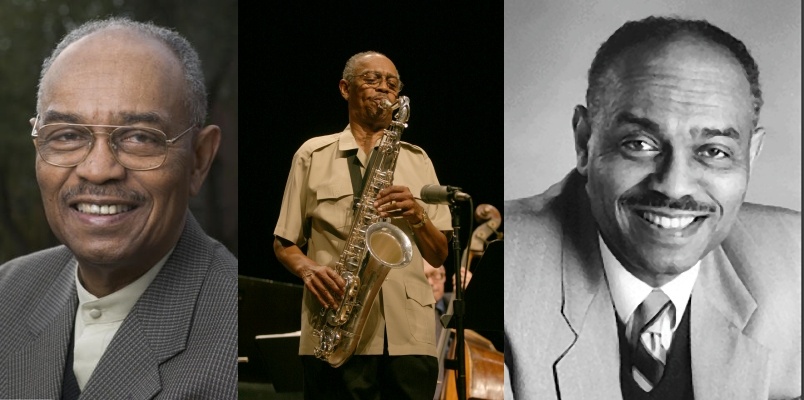
A trailblazer in the American classical music tradition, Dr. Frederick C. Tillis bridged jazz and European classical music as a renowned composer, jazz saxophonist, and educator. Born in Galveston, TX in 1930, Dr. Tillis began composing when he was 20 years old. From 1950, he composed over 125 works, including symphonies, quartets, solo songs, and choral pieces, that reflected his ethnic and cultural background as well as many cultures and traditions experienced in his travels around the world.
Establishing his passion early in life, the young musician picked up the trumpet to perform in his elementary school's drum and bugle corps. At the age of 12, "Baby Tillis" was performing with jazz bands, traveling extensively with the Tillis-Holmes Jazz Duo and the Tradewinds Jazz Ensemble to Mexico, Europe, Asia, Australia, New Zealand, and Fiji. He earned a college scholarship to Wiley College, whereupon graduation, the new alumnus accepted the role of the college's band director. While pursuing a Ph.D in music studies, he volunteered for the Air Force and became director of the 356th Air Force Band, but returned to earn his doctorate degree from the University of Iowa. Dr. Tillis taught at several universities, eventually at the University of Massachusetts at Amherst, where he became Director of the University Fine Arts Center and was the chief innovator
of the Jazz and Afro-American Music Studies Program.
Dr. Tillis is known for experimenting with the beauty of classical and the beat of jazz. Influenced by Schoenberg, Bach, Prokofiev, Mussorgsky, African-American composers, and world music, Dr. Tillis blended African-American music with European classical music and incorporated both Asian and Western traditions. Known for his intricate melodies and rich harmonic textures, some of his works include A Symphony of Songs, a choral/orchestral work based on poems by Wallace Stevens and commissioned by The Hartford Chorale, Inc.; A Festival Journey and Ring Shout Concerto for percussion, written for Max Roach; and Concerto for Piano and symphony orchestra written for Billy Taylor.
His work continued as an educator and cultural ambassador throughout his life, traveling to advise the establishment of a jazz studies program at the University of Fort Hare in South Africa, spending a three-week residency to help establish a jazz major at the Chulalongkorn University in Bangkok, Thailand on behalf of the United States Information Agency, and sharing his talent as a Master Artist in Residence at the Akiyoshidai International Art Village in Yamaguchi, Japan. Having spent a long life making musical connections around the world, Dr. Tillis passed away at the age of 90 in May 2020.
At a UMass Amherst conference in 2010, Dr. Tillis reflected, "...Every place I've gone I've heard African - but not African only - American classical music....[We] had a thing for calling it America's classical music, and I think that's very valuable. Because if you look at music all over the world - and there's a European tradition, a very fine tradition; I write in it and so forth -- but then there's another tradition that has a rhythm; it has a melody; it has something altogether different that's all over the world, everywhere you go; you would hear African American music: China, India, it doesn't matter. So I think we're very much on target in calling it American classical music, European classical music....I think that those are the kinds of important things that should make us proud and also enlighten us; one of the things about African American music, jazz, is that it is a very spiritual kind of music." Read more
A Composer to Know: Jessica Meyer
March 2, 2021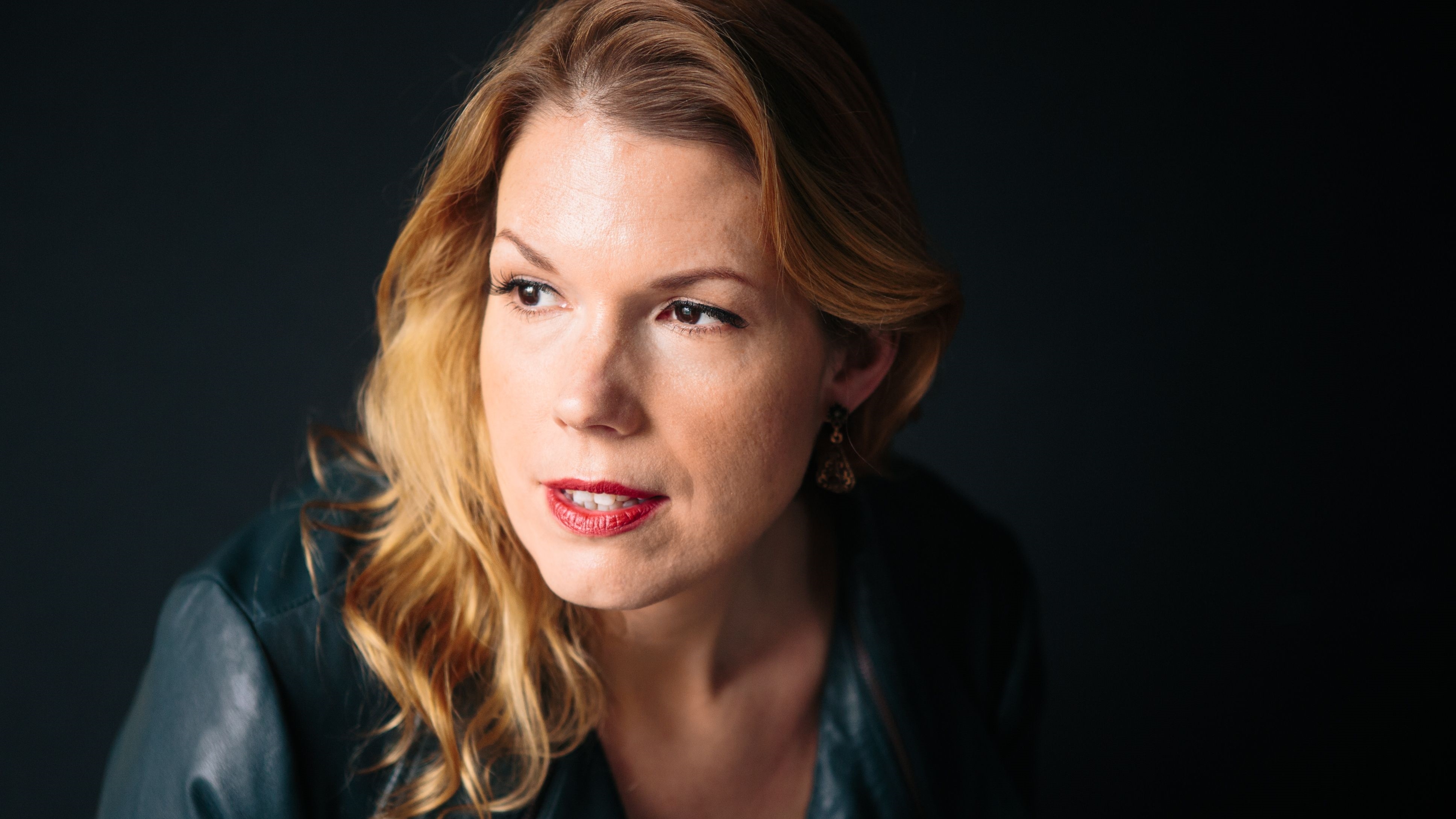
As a critically acclaimed violist and passionate educator, New York-based artist Jessica Meyer embarked on her composition career only seven years ago. In a recent interview for the record label Bright Shiny Things she explained, "After many, many years of playing new music and helping kids create their own music, I could not ignore the nagging feeling I had that I was not doing what I was supposed to be doing. I started to write for myself, but once I started writing for other people in 2014, the floodgates were opened and I knew that without a doubt that was what was missing from my life."
In her solo performances, Meyer uses a single simple loop pedal to create a virtuosic orchestral experience using her viola and voice. Drawing from wide-ranging influences which include Bach, Brahms, Delta blues, Flamenco, Indian Raga, and Appalachian fiddling, Meyer's music takes audience members on a journey through joy, anxiety, anger, bliss, torment, loneliness, and passion.
Meyer's work Slow Burn had its premiere on March 18, 2018, performed by the string quintet Sybarite5.
It is also a combination of all the groovy music I like to listen to, at the heart of which is a theme that most singers wind up singing about at some point: that unrequited love that was never meant to be.

Hear Jessica Meyer's Slow Burn performed by your Charlotte Symphony streamed from the Knight Theater on Saturday, March 6 at 7:30 p.m. (watch through March 13)
Read more
A Composer to Know: Jessie Montgomery
February 1, 2021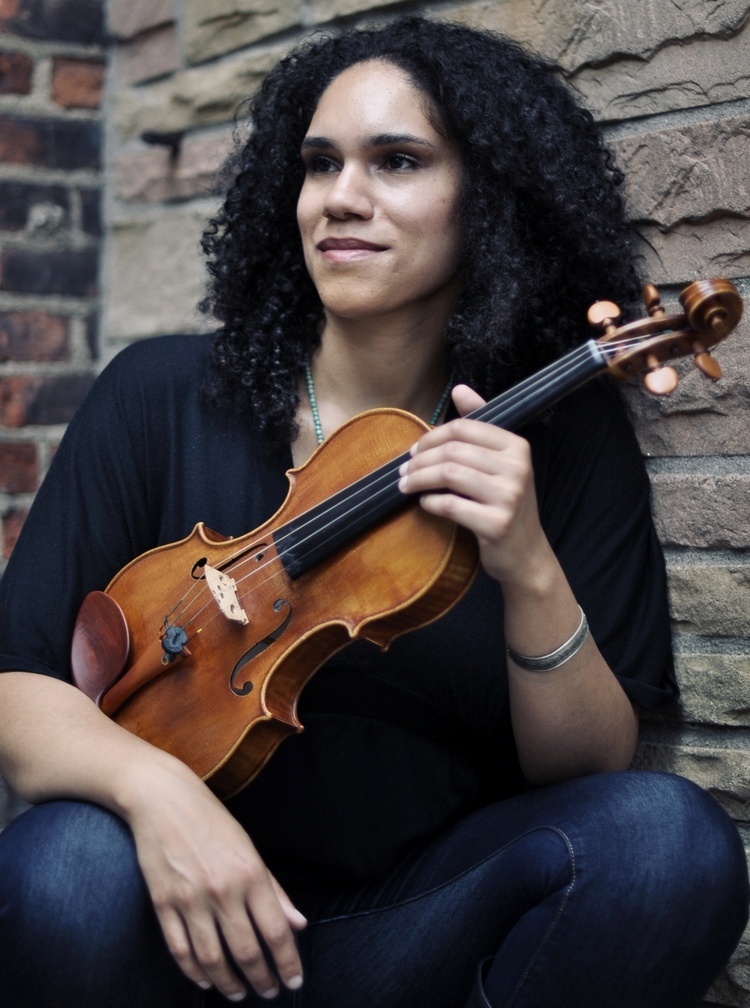
Photo credit: Jiyang Chen
|
A composer, violinist, and educator, Jessie Montgomery's music melds the classical tradition with elements of folk music, spirituals, improvisation, language, and social justice. As a rising star in today's classical music scene Jessie has made a name for herself composing works that have been described as "turbulent, wildly colorful and exploding with life" (The Washington Post). Jessie was born and raised in Manhattan's Lower East Side in the 1980s during a time when the neighborhood was at a major turning point in its history. Artists gravitated to the hotbed of artistic experimentation and community development. |
Her parents - her father a musician, her mother a theater artist and storyteller - were engaged in the activities of the neighborhood and regularly brought Jessie to rallies, performances, and parties where neighbors, activists, and artists gathered to celebrate and support the movements of the time. It is from this unique experience that Jessie has created a life that merges composing, performance, education, and advocacy.
Through her music, Montgomery often explores the theme of what it means to be an American (especially a Black woman in America), her heritage, and what her parents have experienced in this country.
Montgomery's work, Starburst, was commissioned by the Sphinx Organization and premiered by its resident Sphinx Virtuosi in 2012. Montgomery writes:
Hear Jessie Montgomery's Starburst performed by your Charlotte Symphony - streamed live from the Knight Theater on Saturday, Feb. 6 at 7:30 pm (watch through Feb. 13). >> Details
Read more
| Older Posts » |
Latest Posts
- MERGE: Symphonic x Electronic
- Heart of the Home Tour Returns
- Composer Spotlight: Nia Imani Franklin
- More Famous Than Mozart: Joseph Bologne, Chevalier de Saint-Georges
- Art in Motion: Rosalia Torres-Weiner Chosen to Design CSO Roadshow
- Announcing Kwamé Ryan as the Charlotte Symphony’s Next Music Director
- Photos: Charlotte Symphony Annual Gala and Concert
- Five Must-See Concerts of the 2023-24 Season
- 5 Pro Tips for the Best Summer Pops Experience
- A Preschool Performance Three Years in the Making







